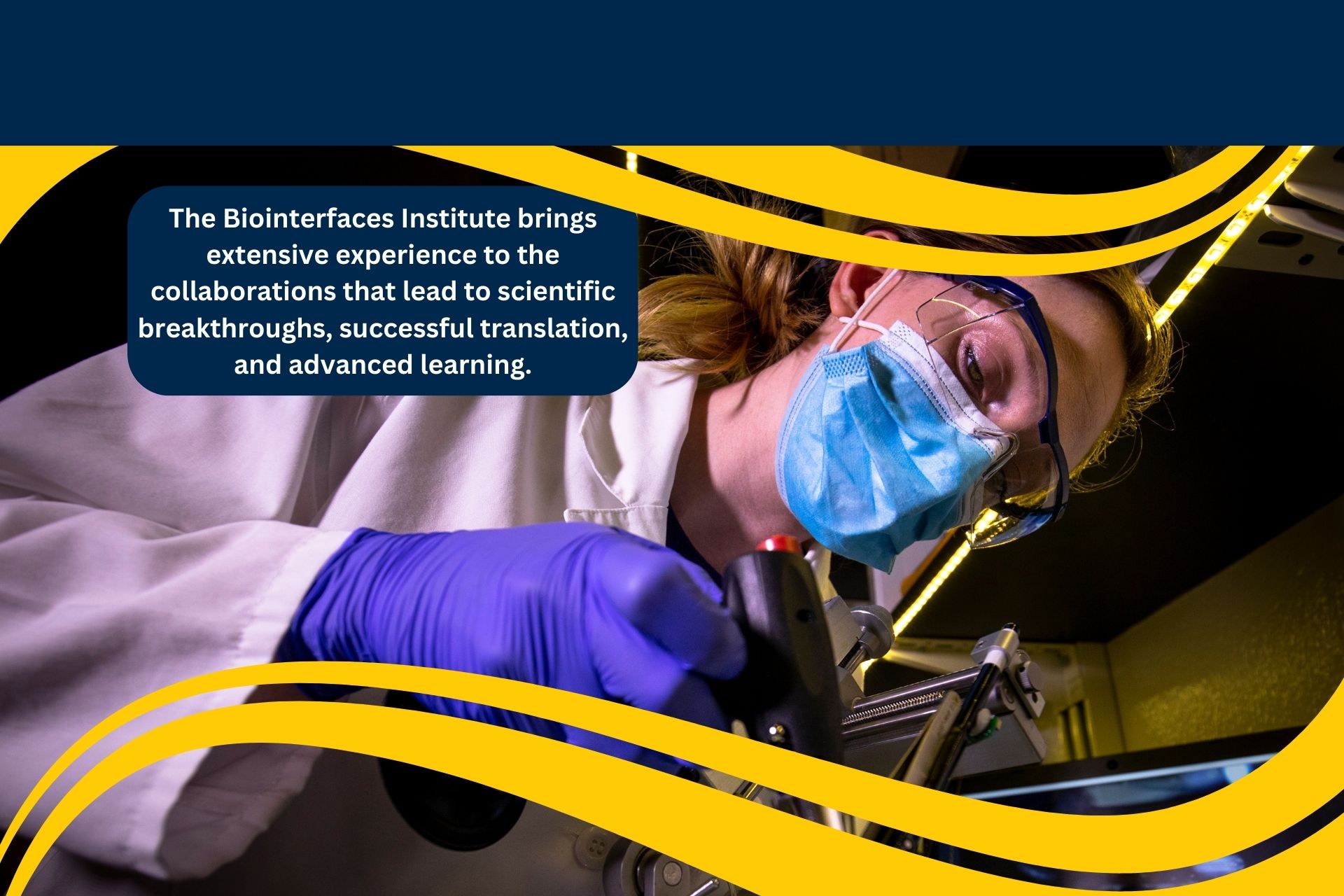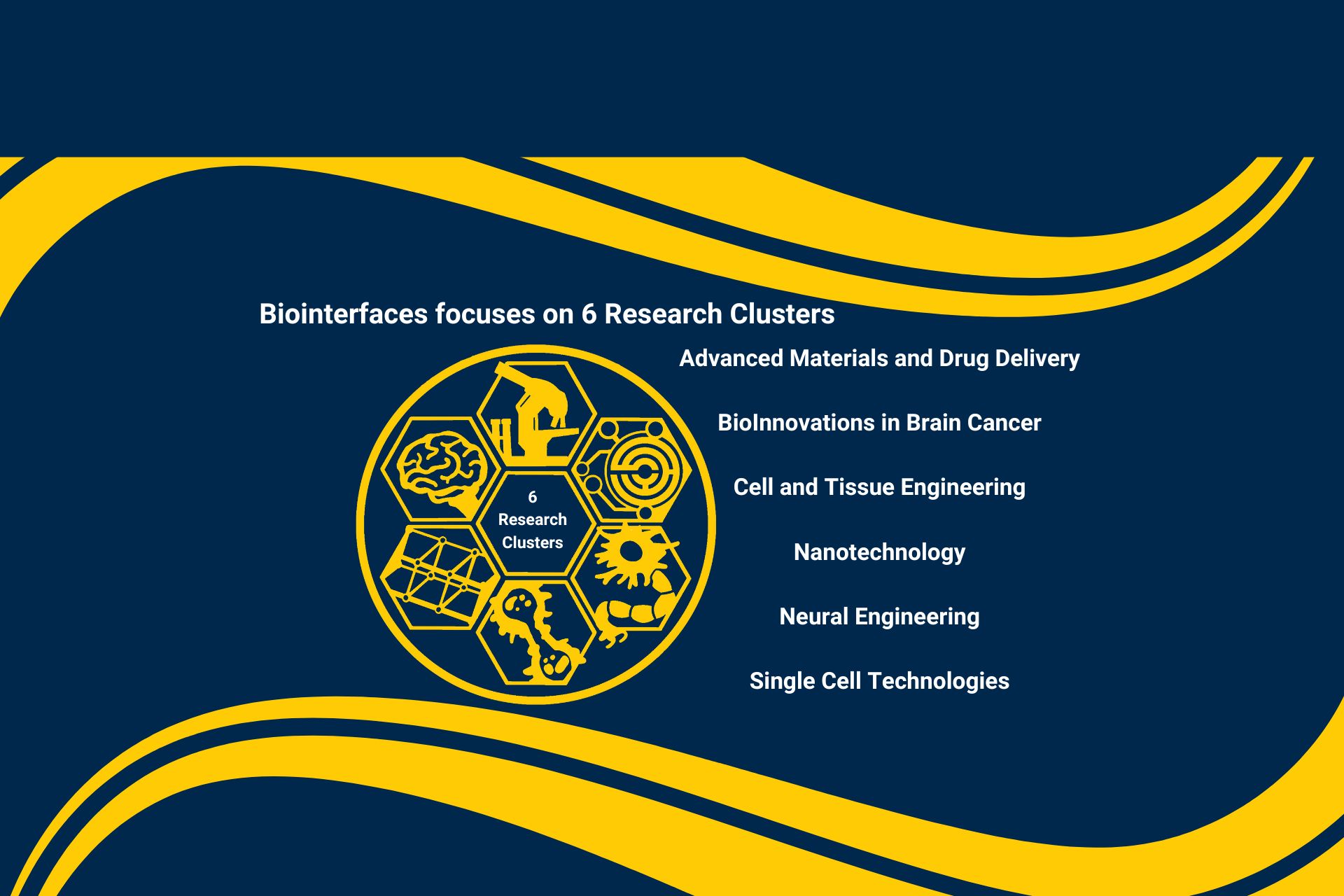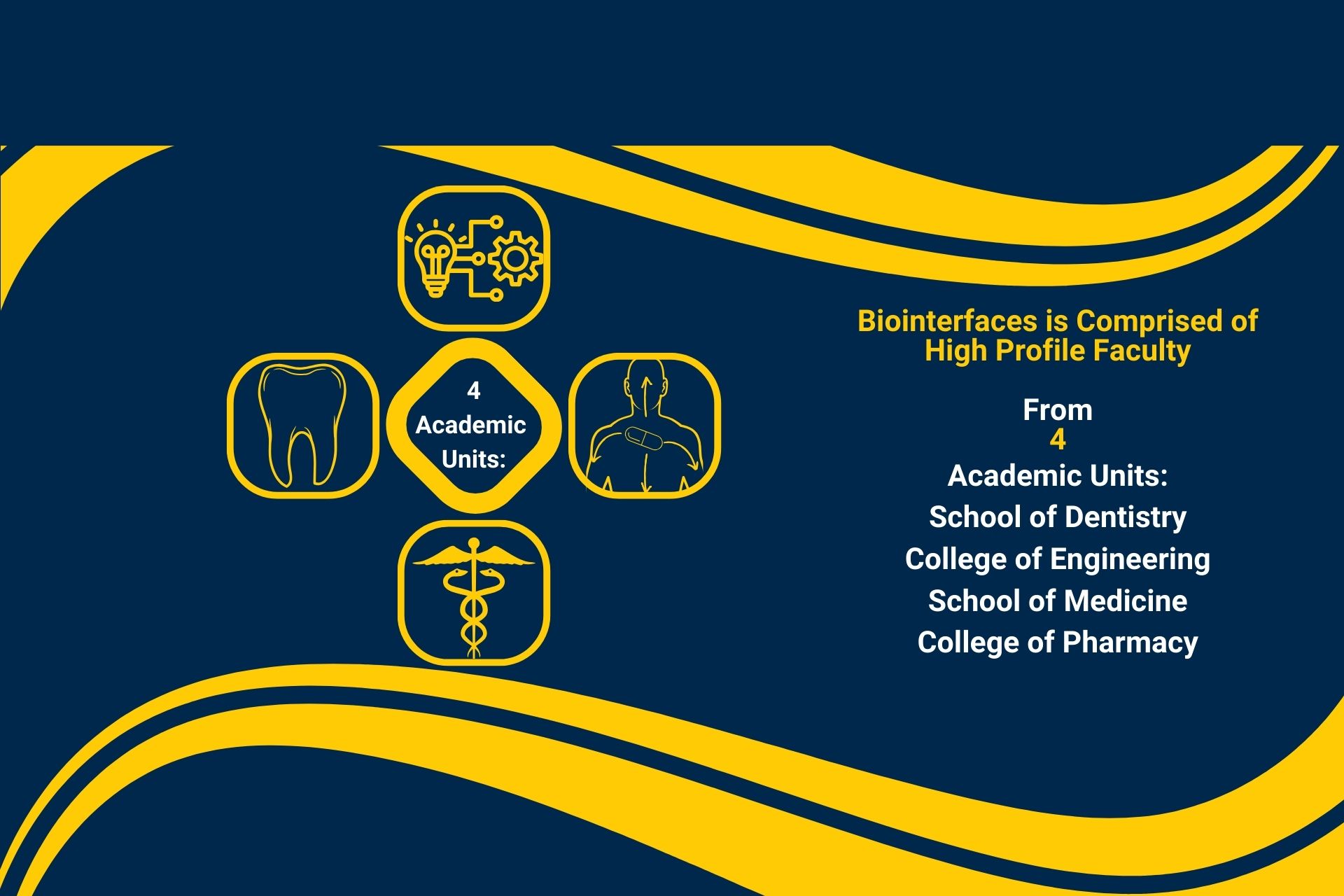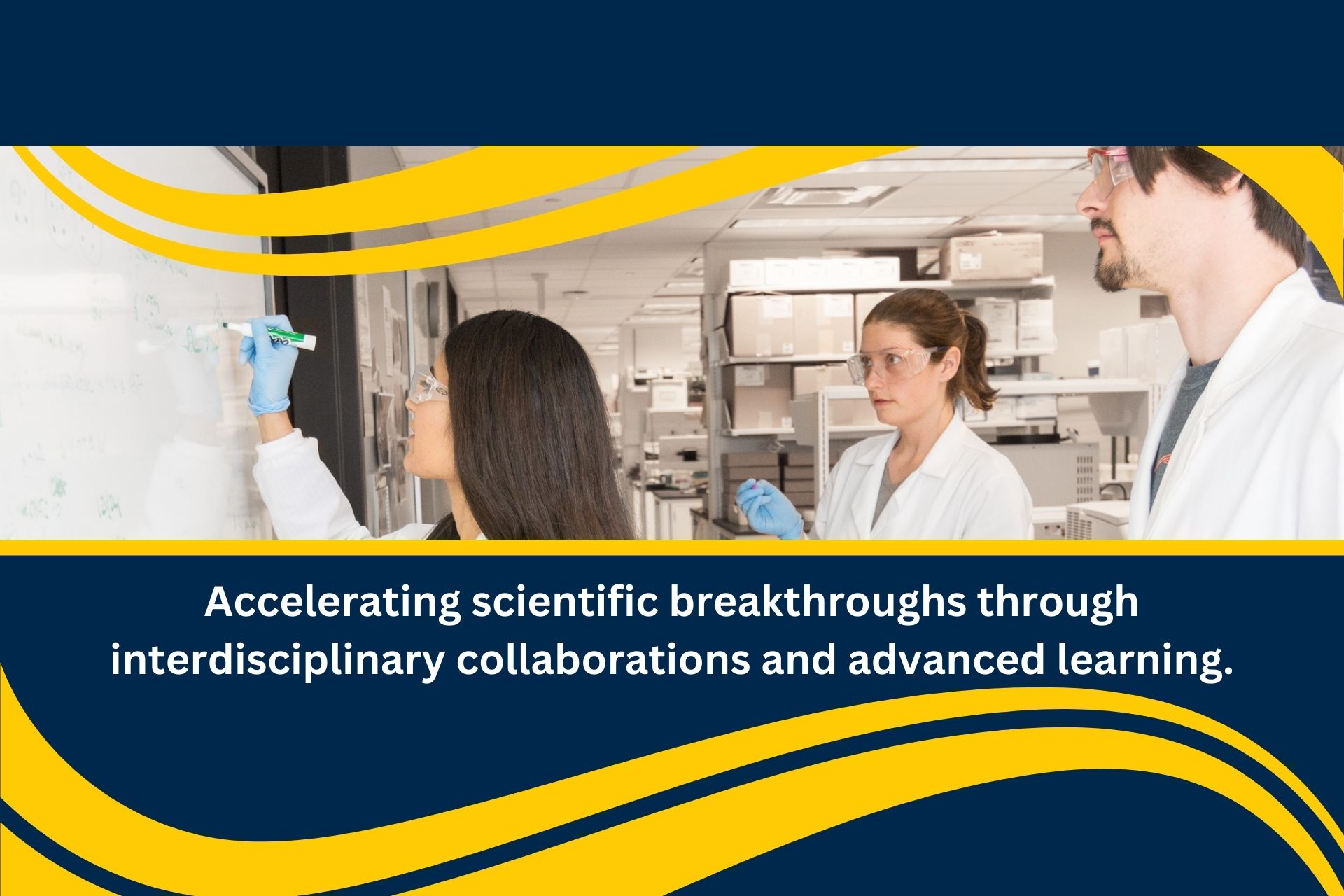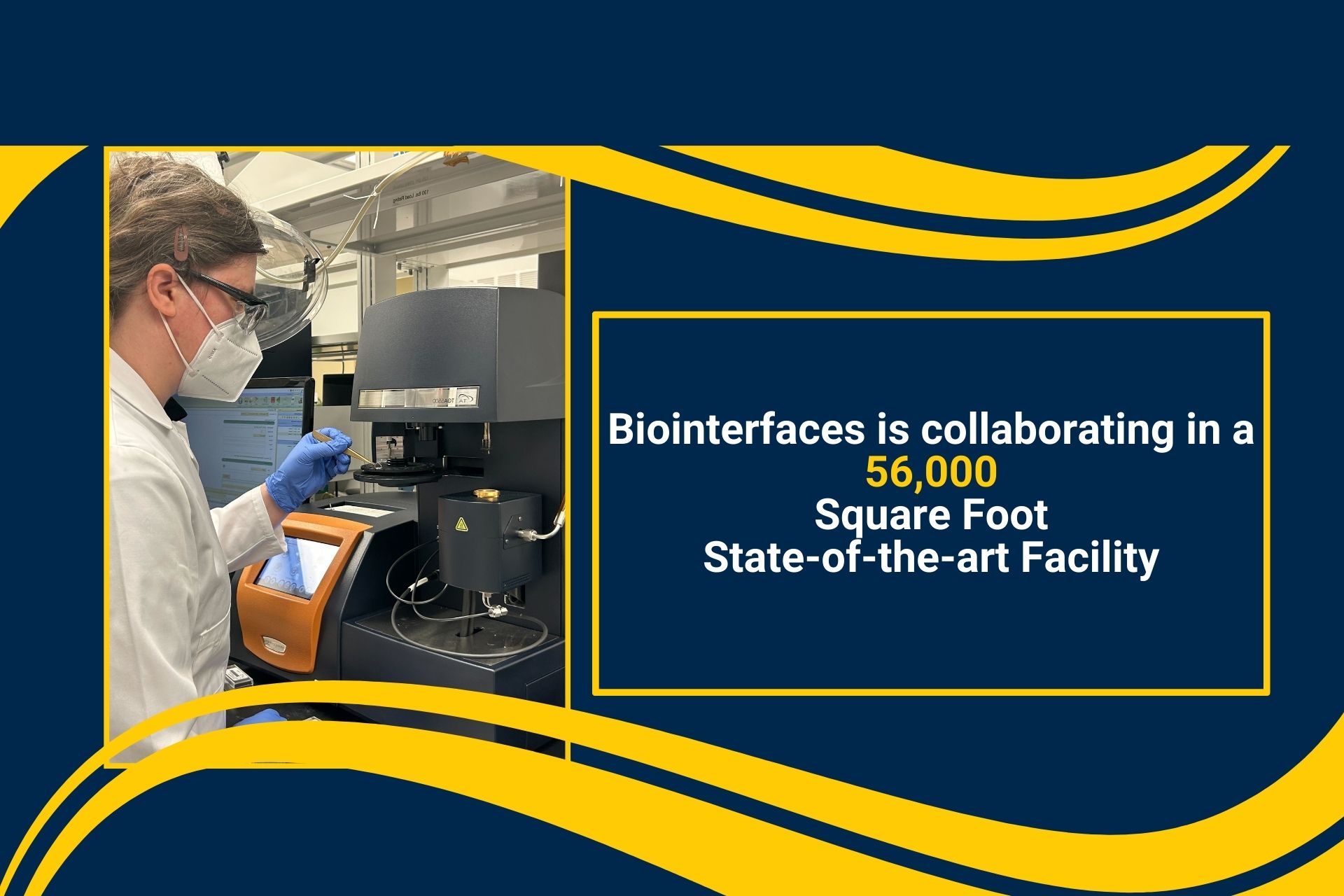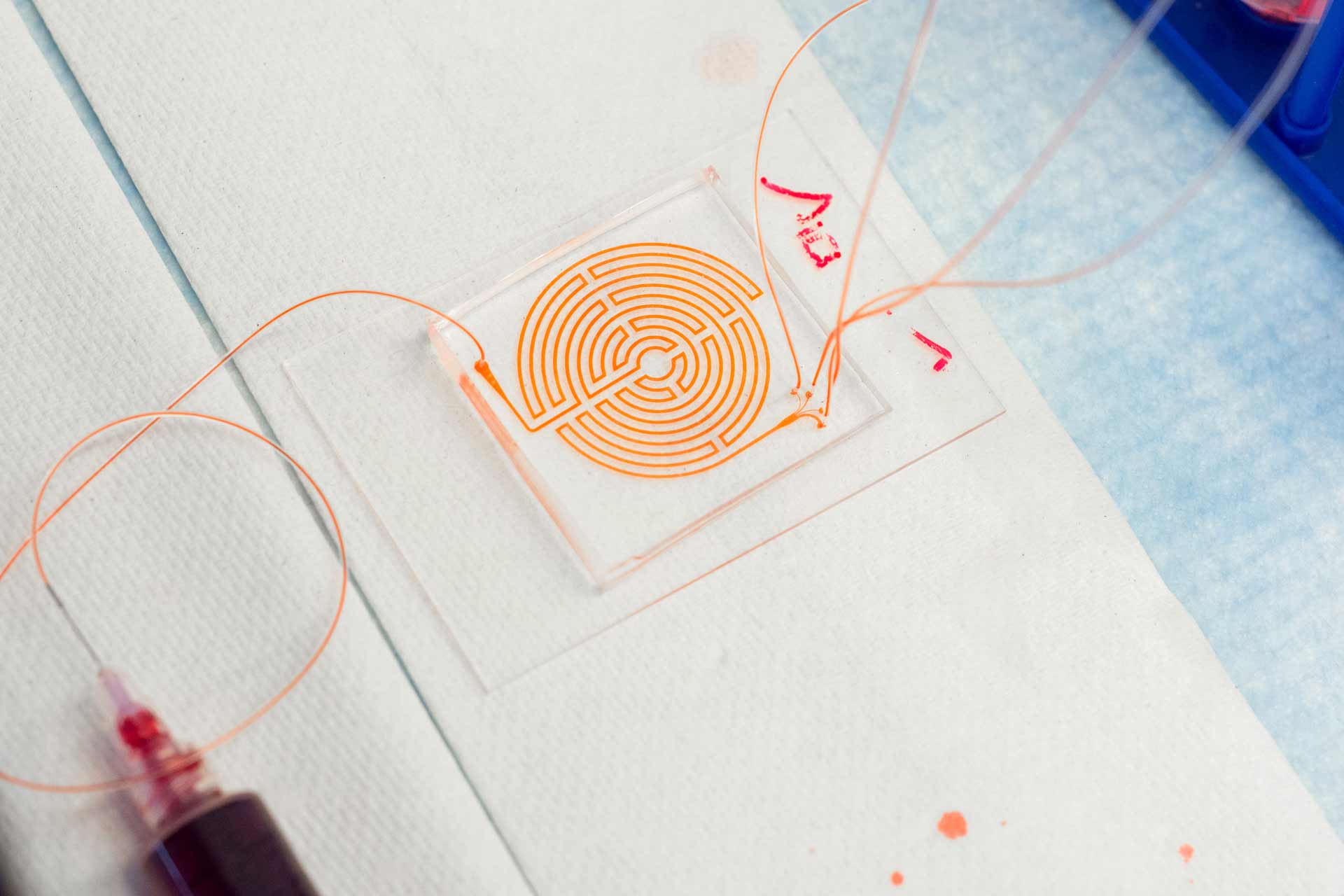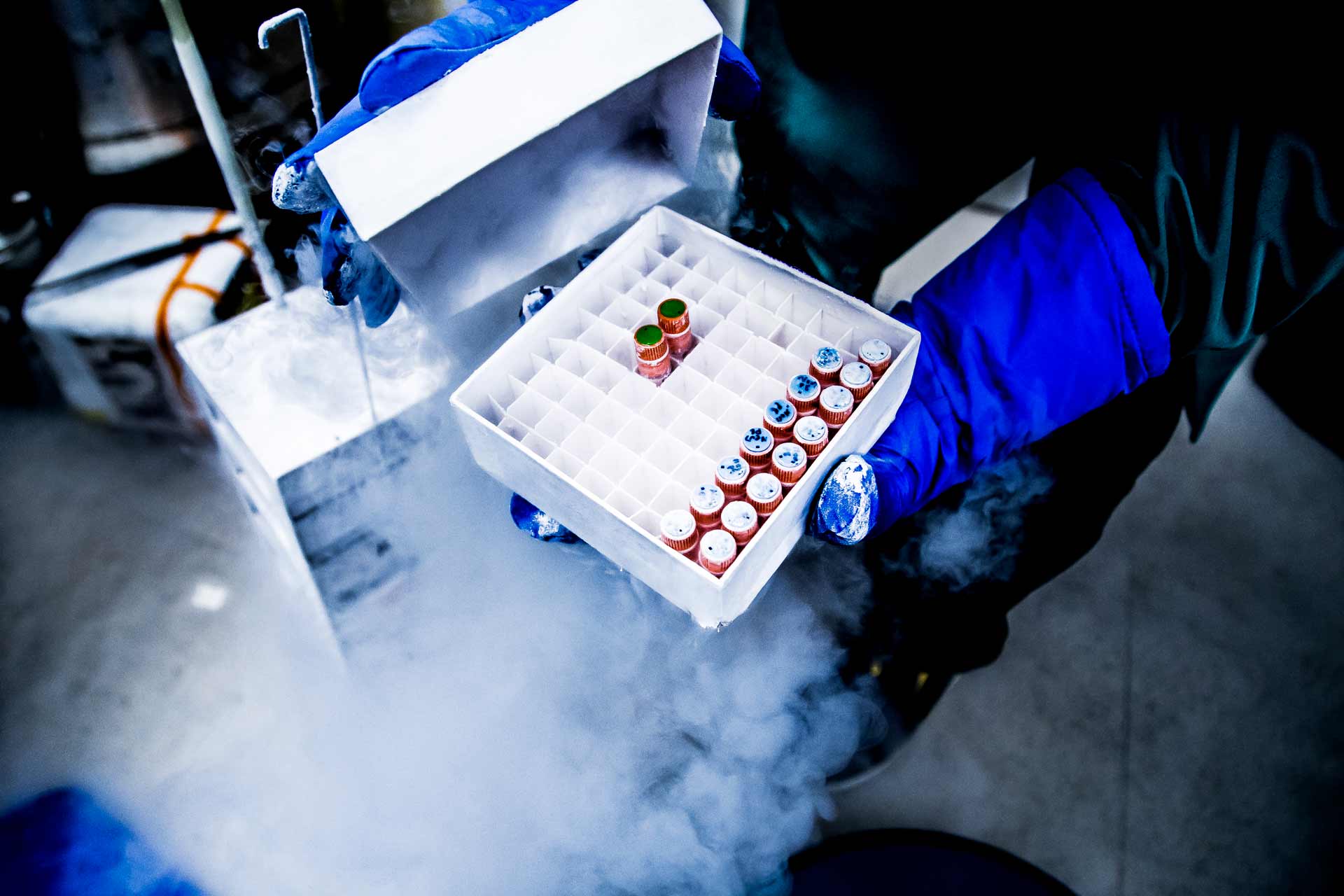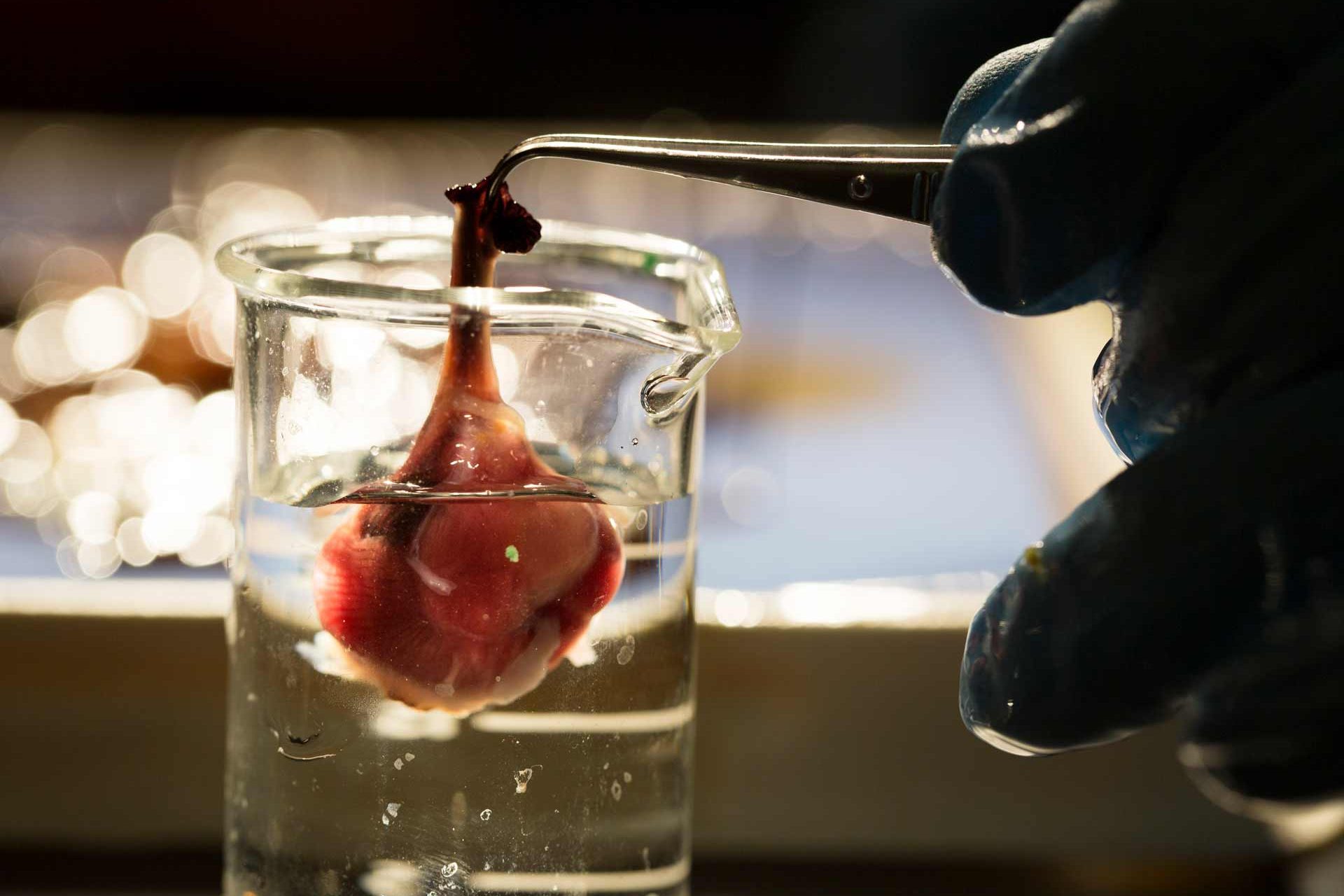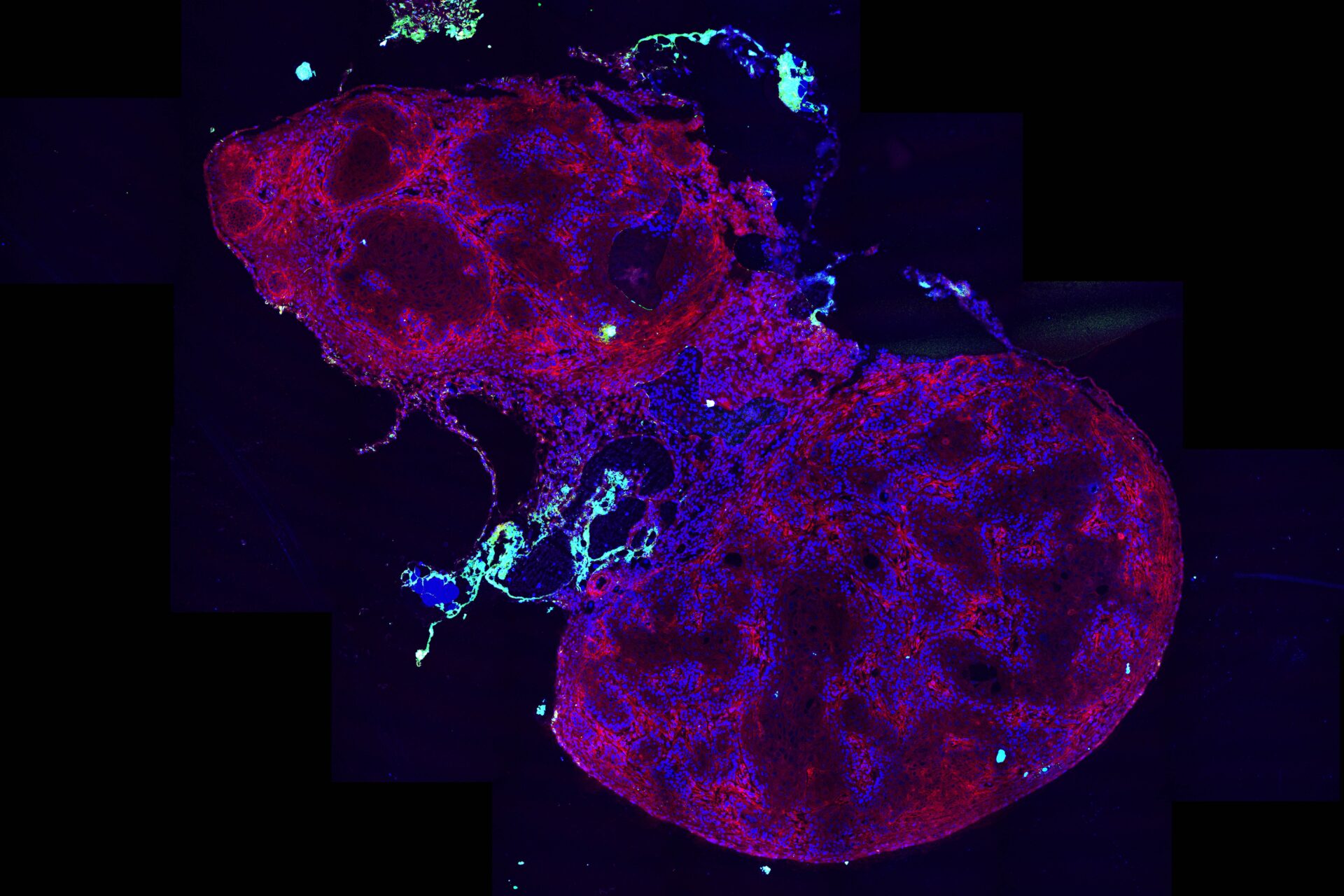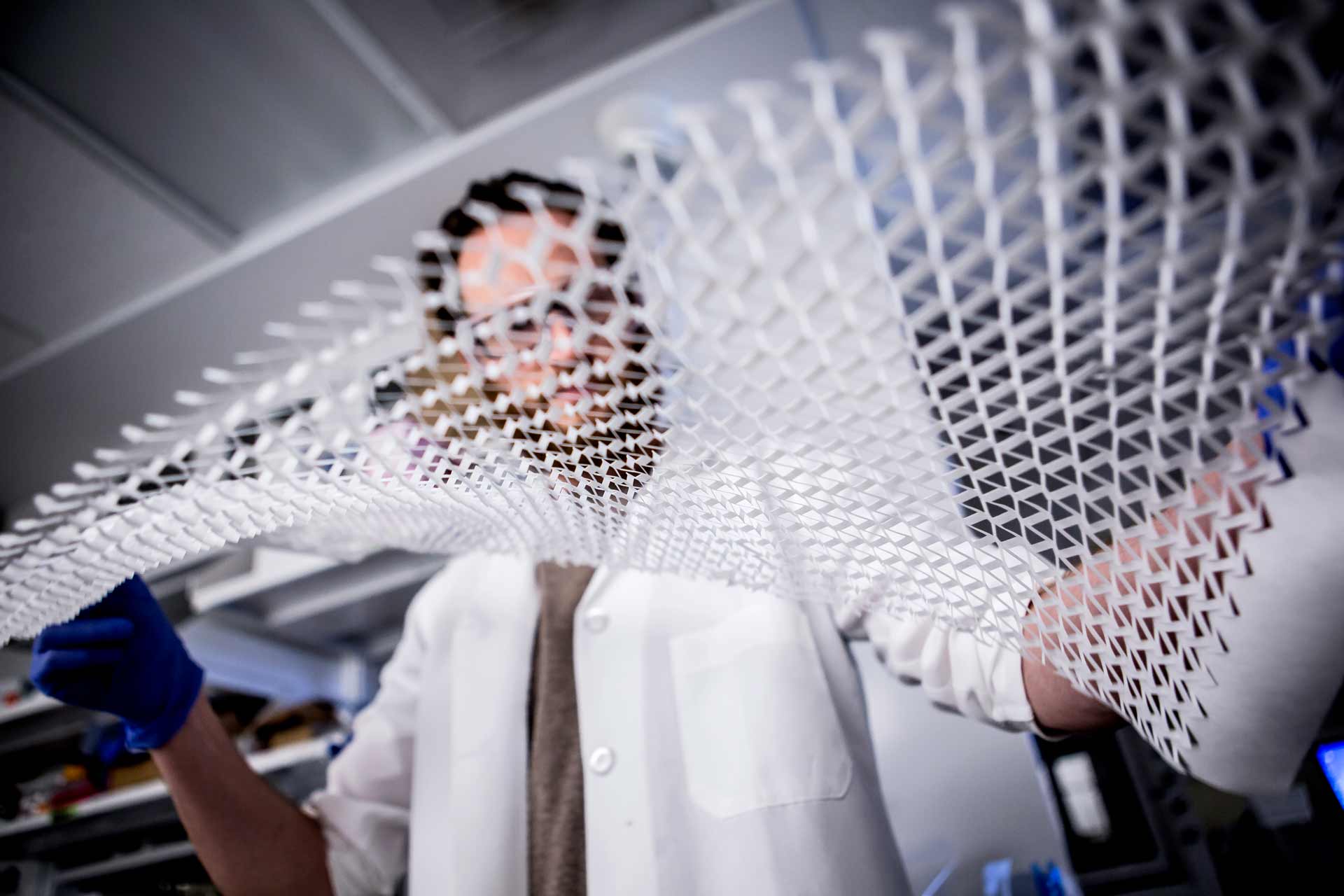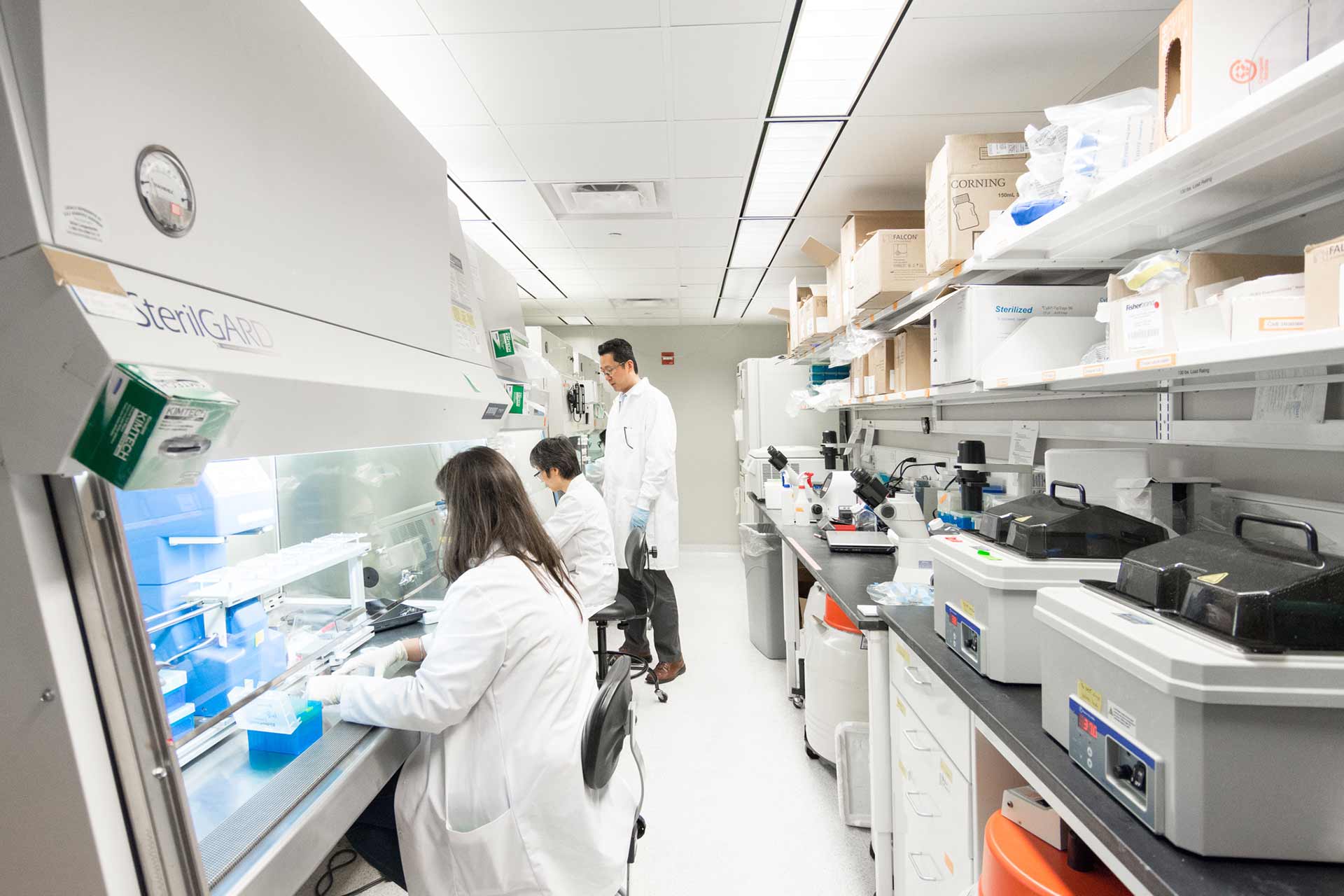Charting a new generation of biomedical research
The breakthrough biomedical discoveries of the future — discoveries with the power to transform healthcare and change millions of lives — will not take place in disciplinary silos or isolated labs. They will occur at the interface of disciplines, and they will be fueled by innovative, forward-thinking, and often unexpected collaborations among leading investigators from life and physical sciences.
Making those collaborations happen is the mission of the University of Michigan Biointerfaces Institute. It’s a mission we achieve every day, a vision that becomes reality through a combination of superb talent, peerless facilities, non-stop networking, and funding opportunities that ignite new discoveries and speed the delivery of high-impact healthcare to the world.
BI Research
Research within the institute focuses on the juncture between physical and biological systems and comprises of six research clusters that break down disciplinary barriers to generate high-impact biomedical innovations.
BI Impact
BI researchers are active contributors to the university’s research mission: engaging in scientific discovery and entrepreneurship across the institute and the entire campus. At BI, we are making scholarly impact and technological strides, while training the next generation of biomedical engineers.
